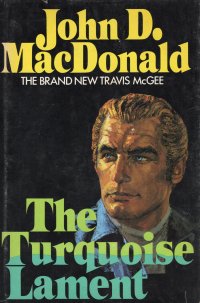 The FTP client didn’t sqwauk at me when I uploaded the cover image, so I thought maybe I’d not written a book report on this book before. But, no, I did read it and report on it in 2011–but in the days before I posted cover images of the books (because I wanted to link them to my Amazon Associates page, but a couple program changes later, and I’m too much of a backwater to participate). I bought this, a second printing copy, in September, and I dived into it to serve as a contrast with the other video-game-based fiction I’ve been reading lately.
The FTP client didn’t sqwauk at me when I uploaded the cover image, so I thought maybe I’d not written a book report on this book before. But, no, I did read it and report on it in 2011–but in the days before I posted cover images of the books (because I wanted to link them to my Amazon Associates page, but a couple program changes later, and I’m too much of a backwater to participate). I bought this, a second printing copy, in September, and I dived into it to serve as a contrast with the other video-game-based fiction I’ve been reading lately.
I’ll give you the synopsis from 2011 because I’m to lazy to resynopse:
Within this book, McGee reunites with a former acquaintance he had known when she was a teenager. Now she’s a well-to-do heiress to a comfortable living from her treasure-hunter father, and she’s sailing around the world with her new husband. She thinks her husband is trying to kill her, so McGee flies out to Hawaii. He decides she’s just unnerved and not in love with her husband and that, hey, she’s all grown up now and they’re perfect together. So she’s going to sell the boat the newlyweds have been sailing on and live with McGee.
So McGee returns to Florida, but other events lead him to wonder. An intermediary tries to get an expedition going based on the lost research of the treasure-hunting father, which leads to the realization that maybe the husband is trying to kill her. Or make her think she’s going mad.
So the story arc is going to Hawaii, meeting the girl-now-woman, convincing her she’s not mad and that her current husband is not the man for her after all. When McGee returns to Florida, an acquaintance comes to him and tries to determine if McGee is the person who came into possession of the treasure-hunter father’s notes and plans for further expeditions–the man had accompanied the treasure-hunter father, McGee, Meyer, and others on a promising but incomplete recovery operation before the father died. McGee doesn’t have the books, but when he starts looking into the offer, he discovers two things: That the people handling the estate might have left them out of the estate, and second, that the man who married the daughter is probably a psycho with a long list of murders behind him in “accidents” which have befallen people whom he thinks have wronged him.
MacDonald goes to Pago Page (American Samoa) where the girl and her husband were going to take the boat, and, honestly, I remember that the girl dies in one of the books, but it’s not this one or, apparently, The Lonely Silver Rain. When they arrive, McGee foils the plan to have the allegedly suicidal woman “jump,” and the husband dies in a cinematic fashion–the book came out after the first, and only, movie adaptation (so far) of a McGee title (Darker than Amber, 1970)–so maybe MacDonald was writing for that. His work never went totally Hollywood like Robert B. Parker’s did.
The book contains all the usual McGee-esque things: Asides lamenting industrialization/pollution/despoilation of nature and soul-searching about aging. A sad coda indicates that McGee did not marry the rich daughter as he thought he intended, as she found someone more her own age, a psychiatrist from one of her therapy programs for recovering from her ordeal.
I flagged a couple of things. One, an ackshually where Meyer is hospitalized with a viral infection, so they’re pumping him full of antibiotics; an ackshually about how many horses and other livestock an acquaintance has on five acres (too many); and a quote from Meyer about how sickness makes you turn inward and how you wonder if any other things are related to the progression of your own mortality. I also looked up a musician MacDonald mentions (he mentions Eydie Gorme in A Tan and Sandy Silence) just in case I might look for the artist’s records at book sales and whatnot. But Julian Bream is an English classical guitarist, so LPs might be thin on the ground in southwest Missouri.
So, yeah, a good read. With depth lacking in a lot of modern works, even the doorstoppers. And I’m happy to read more MacDonald–I still have a couple of paperbacks of his that I have not yet read in my stacks, and I’m always happy to revisit McGee books. Which I have to buy again to read again as it is not my wont to dig through the books on my read shelves to revisit things. The MacDonald books are altogether somewhere, buried by a mishmash of more recently read things. I will try to pigeonhole this one somewhere near them and to determine of I have a first printing of the book already. Probably not.


